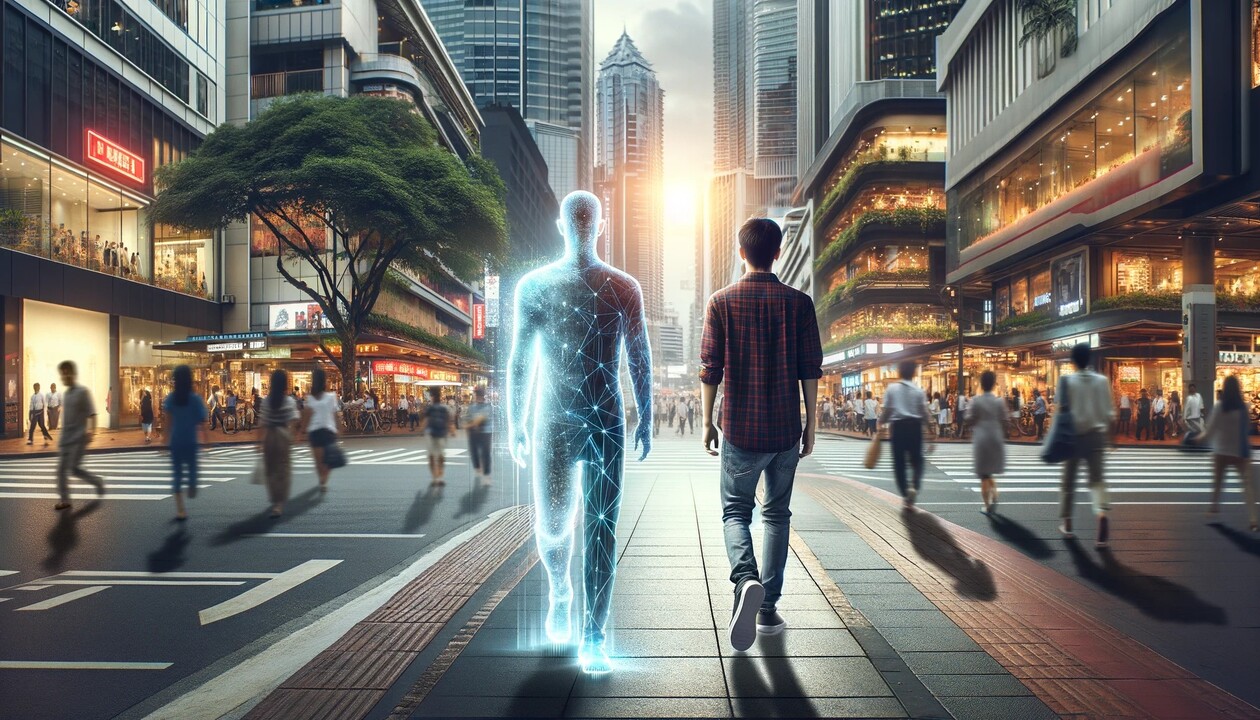
Our digital clone
Massimo Canducci
Innovation @ Engineering Group | Expert on "Innovation and Future" @ Singularity University | Latest book ?? augmentedlives.com ?? | My Substack ?? futurescouting.substack.com ?
In early November, OpenAI, renowned for developing the ChatGPT platform, introduced the capability to create custom versions of its popular chatbot.
This innovation allows for easy customization without any programming skills.
Users can now modify the chatbot's standard behavior and enhance its knowledge base with ease. With just a few clicks, anyone can craft their own personalized version of ChatGPT. In the future, there will also be opportunities to monetize the chatbot's usage. For example, a chef could develop a system that offers recipes and culinary tips from their books, while an illustrator might create an image generator that emulates their unique artistic style. These custom chatbots can be made available either for free or for a fee.
Recently, leveraging this new feature, I developed my personal chatbot designed to engage users in discussions about technology, innovation, and future trends, infused with my unique perspectives and insights. To accomplish this, I've enriched the chatbot with an extensive collection of my work from the last two years. This includes numerous articles and even a few chapters from my latest book, "Augmented Lives", ensuring that the chatbot not only disseminates information but also echoes my thoughts and viewpoints.
You can explore my chatbot, MaxGPT, via this link.
This development from OpenAI signifies more than just behavior customization; it paves the way for training these tools with diverse knowledge bases.
In the future, it might be possible to train these tools with comprehensive data about an individual, ranging from public content to private interactions, potentially creating something more than a digital twin: a digital clone.
Imagine training a chatbot with all the content produced by a specific author: books, articles, interviews, and even audio and video material available online. We could end up with a chatbot that responds in a manner strikingly similar to the author, mirroring their style and substance. However, it's important to note that such a clone would only reflect the author's public persona, as it would be built solely on publicly accessible content, excluding any private dimensions.
Imagine enhancing our chatbot by integrating it with private materials such as diaries, notebooks, personal letters, and family audio and video recordings. This would enable the chatbot to adopt a more personal and intimate interaction style, particularly with family members, reflecting nuances of the private sphere.
Taking a step further, envision transcending the chatbot's textual limitations by giving it a voice and a face, crafted using sophisticated AI algorithms that have analyzed the author's audio and video content. This would result in a remarkably lifelike digital clone of the author. This clone, strikingly similar in appearance, would be capable of engaging in natural language conversations, using the author's voice and mirroring their concepts, content, conversational style, and tone. This digital simulacrum would offer an immersive and authentic experience, almost as if interacting with the author themselves.
领英推荐
Creating a digital clone with this technology would result in a replica whose likeness in behavior and content depends heavily on the volume and variety of material fed into its knowledge base. The more comprehensive the data, the closer the clone's behavior might mirror that of the original person. This could extend beyond mere conversations to include intimate thoughts and reflections, potentially replicating the nuanced aspects of the individual's personality.
While these technical achievements are undoubtedly fascinating, they raise significant ethical considerations. One could create digital representations of deceased individuals, allowing conversations with these replicas as if they were still present. The fidelity of these 'digital clones' would hinge entirely on the quantity and quality of data available to the knowledge base. This possibility opens up profound ethical debates about the implications of recreating digital versions of people, especially those who are no longer alive.
Numerous people today firmly oppose the idea of creating digital clones, but it's important to consider how perspectives might shift in the face of grief following the loss of a friend or family member. Such emotional circumstances could lead to a change in choices, potentially giving rise to a new market for digital clones. These virtual avatars, closely resembling the departed, would enable individuals to engage in conversations as though their loved ones were still alive.
This emerging possibility unfolds new scenarios and raises fresh questions. It prompts us to reevaluate our understanding of memory, loss, and the ethical boundaries of technology. As we venture into this uncharted territory, it becomes crucial to balance technological advancement with thoughtful consideration of its emotional and ethical impacts.
The future is full of transformative changes in the way we work, travel, consume information, maintain our health, shop, and interact with others.
My latest book, "Augmented Lives" explores innovation and emerging technologies and their impact on our lives.
Available in all editions and formats starting from here: https://www.amazon.com/dp/B0BTRTDGK5
Consultant | Technologist | Investor | Business Mentor
10 个月Great questions to expand the imagination